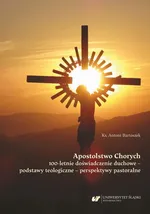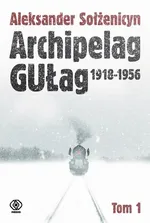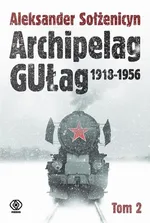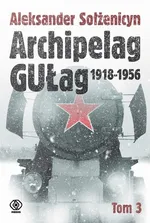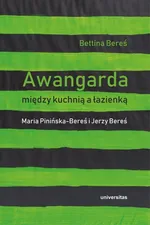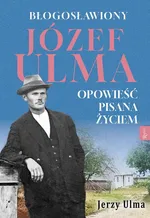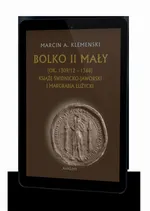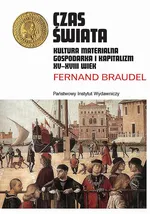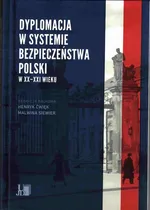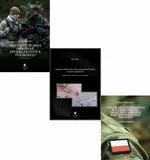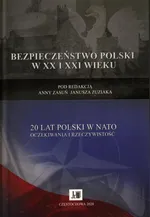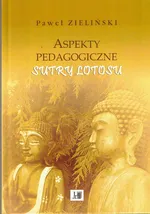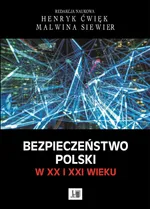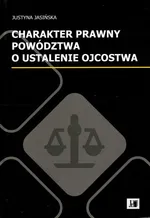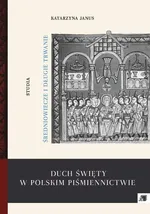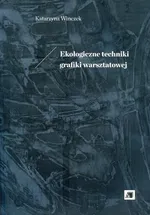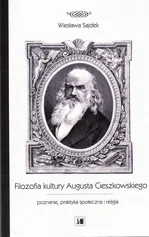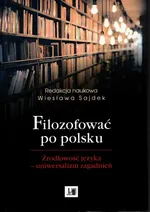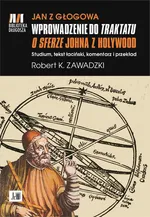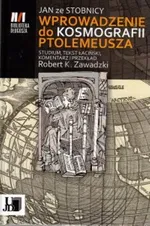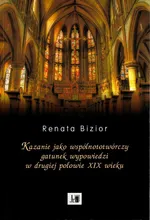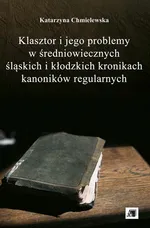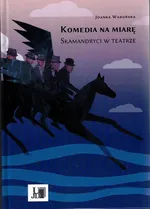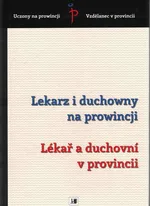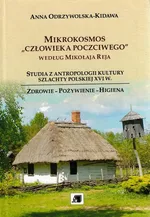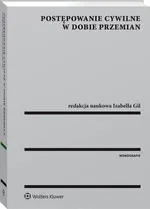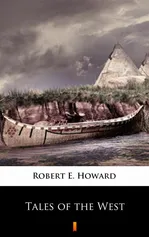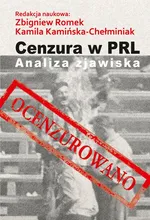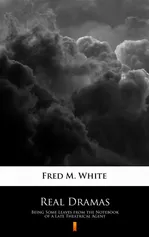- Kategorie:
- Język wydania: ??angielski_pl_PL??
- ISBN: 978-83-7455-579-1
- ISBN druku: 978-83-7455-579-1
- Liczba stron: 200
-
Sposób dostarczenia produktu elektronicznegoProdukty elektroniczne takie jak Ebooki czy Audiobooki są udostępniane online po uprzednim opłaceniu (PayU, BLIK) na stronie Twoje konto > Biblioteka.Pliki można pobrać zazwyczaj w ciągu kilku-kilkunastu minut po uzyskaniu poprawnej autoryzacji płatności, choć w przypadku niektórych publikacji elektronicznych czas oczekiwania może być nieco dłuższy.Sprzedaż terytorialna towarów elektronicznych jest regulowana wyłącznie ograniczeniami terytorialnymi licencji konkretnych produktów.
-
Ważne informacje techniczne
-
Minimalne wymagania sprzętowe:
- procesor: architektura x86 1GHz lub odpowiedniki w pozostałych architekturach
- Pamięć operacyjna: 512MB
- Monitor i karta graficzna: zgodny ze standardem XGA, minimalna rozdzielczość 1024x768 16bit
- Dysk twardy: dowolny obsługujący system operacyjny z minimalnie 100MB wolnego miejsca
- Mysz lub inny manipulator + klawiatura
- Karta sieciowa/modem: umożliwiająca dostęp do sieci Internet z prędkością 512kb/s
-
Minimalne wymagania oprogramowania:
- System Operacyjny: System MS Windows 95 i wyżej, Linux z X.ORG, MacOS 9 lub wyżej, najnowsze systemy mobilne: Android, iPhone, SymbianOS, Windows Mobile
- Przeglądarka internetowa: Internet Explorer 7 lub wyżej, Opera 9 i wyżej, FireFox 2 i wyżej, Chrome 1.0 i wyżej, Safari 5
- Przeglądarka z obsługą ciasteczek i włączoną obsługą JavaScript
- Zalecany plugin Flash Player w wersji 10.0 lub wyżej.
-
Informacja o formatach plików:
- PDF - format polecany do czytania na laptopach oraz komputerach stacjonarnych.
- EPUB - format pliku, który umożliwia czytanie książek elektronicznych na urządzeniach z mniejszymi ekranami (np. e-czytnik lub smartfon), dając możliwość dopasowania tekstu do wielkości urządzenia i preferencji użytkownika.
- MOBI - format zapisu firmy Mobipocket, który można pobrać na dowolne urządzenie elektroniczne (np.e-czytnik Kindle) z zainstalowanym programem (np. MobiPocket Reader) pozwalającym czytać pliki MOBI.
- Audiobooki w formacie MP3 - format pliku, przeznaczony do odsłuchu nagrań audio.
-
Rodzaje zabezpieczeń plików:
- Watermark - (znak wodny) to zaszyfrowana informacja o użytkowniku, który zakupił produkt. Dzięki temu łatwo jest zidentyfikować użytkownika, który rozpowszechnił produkt w sposób niezgodny z prawem.
- Brak zabezpieczenia - część oferowanych w naszym sklepie plików nie posiada zabezpieczeń. Zazwyczaj tego typu pliki można pobierać ograniczoną ilość razy, określaną przez dostawcę publikacji elektronicznych. W przypadku zbyt dużej ilości pobrań plików na stronie WWW pojawia się stosowny komunikat.
The Art of War in the Balkans
(eBook)-
Druk: Częstochowa, 2018
-
Wydanie/Copyright: wyd. 1
-
Autor: Andrzej Krzak, Dariusz Gregorczyk
-
Wydawca: Uniwersytet Humanistyczno-Przyrodniczy w Częstochowie
-
Formaty:
PDF (Watermark)WatermarkZnak wodny czyli Watermark to zaszyfrowana informacja o użytkowniku, który zakupił produkt. Dzięki temu łatwo jest zidentyfikować użytkownika, który rozpowszechnił produkt w sposób niezgodny z prawem. Ten rodzaj zabezpieczenia jest zdecydowanie najbardziej przyjazny dla użytkownika, ponieważ aby otworzyć książkę zabezpieczoną Watermarkiem nie jest potrzebne konto Adobe ID oraz autoryzacja urządzenia.
The Art of War in the Balkans
Balkan conflicts that took place at the end of the 20th century are closely
connected with numerous disputes that occurred after the end of cold war in Europe.
The aspirations to gain independence by the republics of Yugoslavian Federation opened
„Pandora’s box”, which led to intensive military, ethnic, social, religious and cultural
conflict in the Balkans. The words that the Balkans is particularly unstable region of
Europe were confirmed. Armed conflict that took place in the Balkans at the end of 20th
century was not something unusual. Aspirations and passions and unresolved disputes
caused another war fought, above all, between Southern Slavs.
One of the most eminent philosophers of the 20th century Karl R. Popper
(1902–1994) thought that neither science nor any other method can’t predict the course
of coming events. In one of his works entitled „The poverty of historicism”, he wrote:
– the course of human history, to a large extent, depends on development of knowledge;
– future development of knowledge may not be predicted using any rational and
scientific methods;
– we may not predict the future course of human history, therefore, creating theory of
historical development is not possible.
However, above disquisition does not exclude the possibility of carrying out
historical, political or social forecasts. Therefore, learning history does not come down
only to reconstruction of the past. It is something more. It may give rise to undertake
interdisciplinary research on the problems particularly important for the world in an era
of globalization.
The word history (from Greek historeo – to examine, to learn, to return in mind
to the past) is of subjective and objective meaning. Firstly, it is a reference to the events
from the past, in narrower and general sense. Secondly, it is a science about human
history in space and time. According to American historian, James Harvey Robinson,
„history is everything we know about everything, everything humans have ever done,
thought, expected or felt”.
Great Greek historian, Thucydides (460–396 BC) wrote in his work
„Peloponnesian War” that the goal of his work is, by „to be regarded it as useful by
those who want to know the past and form a view on the same or similar events, which
may happen in the future”.
6
The Art of War in the Balkans from the Middle Ages to the 21st century
There is a saying of Cicero (106–43 BC) „historia est magistra vitae” (history
is life’s teacher) and „if you don’t know history, you will always be a child”. Roman
historian Polybius (200–118 BC) claimed that „knowledge of history prepares us to
govern the state”. Therefore, the Romans used history to strengthen loyalty towards the
state and pride of its expansion.
J. W. Goethe claimed that „writing history is a method of liberation from the
past”. He thought that if people are able to learn history well, then history will not
repeat itself. Learning history understood in such a way would be one of basic elements
of good civic education. There is no culture without history, and without knowledge of
history, the fates of societies and nations can’t be understood.
The Balkans is one of these places which, over the centuries, has played a
significant role in the history of Europe and the world. It seems that a concept of
repeatability of events is not only what ancient philosophy of the East is characterized
by, but also many modern historiosophic theories. According to these theories,
everything comes into existence and disappears, only ruins are silent. The view of
cyclical recurrences of history can be found in Plato’s works, as well as Polybius’ works
(a thesis on cyclical development of state systems: tyranny – aristocracy – oligarchy
– democracy – tyranny etc.). The theory of repeatability of history was also used by
Giambattista Vico („spiral of history”, the view on recurrence of barbarity).
In recent years, the concept of cyclicality is becoming more and more popular,
which is proven by popularity of a vision of approaching „new Middle Ages”. We
may also hear more and more often about coming collapse of Western civilization,
„twilight of the West”. It should be emphasized that the Balkans may be regarded as a
region where such repeatability is particularly evident. Bloody conflicts and unresolved
disputes determine the history of Balkan nations, dating back hundreds or even thousand
years backwards. Cyclicality of the course of history is noticeable in in such events
as: domination and collapse of powers (superpowers) and their fight (rivalry) with
direct and indirect participation of Balkan countries, for example, 13th – 19th century
– supremacy of Ottoman Porte; 19th–20th century - Balkan powder keg; the Eastern
question – a fight for influence between England, Germany, Austria-Hungary, Russia
and France; 20th century - a fight for domination by large blocs - firstly central countries
against Entente, then the Great Coalition – Axis countries, and finally the Soviet Union
– United States (Warsaw Pact-NATO) and 21st century United States - Russia, return of
Turkey (the idea of Neo-Ottomanism). Therefore, it may be assumed that undertaking
the research on the art of war with reference to history of Balkan countries will be both
an attempt to systematize current knowledge and to determine new trends. The research
on military history of the Balkans should be of interdisciplinary character. They should
contain elements related to political science, diplomatic games, psychological and
geographical aspects, social conflicts.
The Balkans, the bridge between Europe, Asia and Africa, has been for ages
particularly conflictual region. It was the place of clash of interests of national Balkan
7
Introduction
countries and superpowers. From antiquity until the end of turbulent 20th century,
the Balkans was still a subject of interest of international community and politicians.
Campaigns and wars in the Balkan Peninsula have changed not only this region of
Europe, but also of the whole world. Complicated ethnic relations, legacy of
Turkish occupation, increasing ambitions of Bulgaria, called Balkan Prussia, Serbia
claiming the right to territories that it had in medieval Europe, and Greece, dreaming
about Byzantine glory – had to finally lead to the conflict, which spread outside political
and geographical borders of the Peninsula. Otto Bismarck once said prophetic words:
„On event in the Balkans will become a hotbed of another war” – long before outbreak
of Balkan wars and the First World War predicted that events in this region, due to
increasing conflict between Russia and Austria-Hungary and aspirations of Balkan
countries, would lead to global war.
It must be emphasized that the Balkan Peninsula, due to its former and modern
significance, deserves to undertake research on its history in broader problem context.
The Balkans is perhaps the only place in Europe, in which borders between the world
of Western and Eastern culture, Christianity and Islam, Catholicism and the Orthodox
faith have been outlined. All these differences had (and still have) considerable impact
on history and life of nations living in the Balkan Peninsula. Living in so complicated
and divided region, the leaders of Balkan countries were exposed to influence of
external factors and subjects, which used their weaknesses. National revolutions in the
Balkan Peninsula in the 19th century led to throwing off the yoke of Ottoman rule in
the Balkans. This path was long and bloody. It also caused growing conflict between
newly formed countries. Various political visions and developing nationalisms have
become the same curse for Balkan nations, as the rule of Turks and actions of foreign
superpowers. When the main enemy (Turkey) had disappeared, between Balkan
countries started fighting between themselves. Large superpowers also fought for their
influences and realization of their own goals.
The element initiating the research process of this monograph was the
determination of the subject and goal of the research and then formulation of research
problems, questions and hypothesis. The subject of the research was a military history
of Balkan Peninsula, which have significant impact on political history of Europe
and the world - from the Middle Ages to modern times. It was necessary to carry out
analyses and assessment of military campaigns and political and diplomatic actions in
the Balkan Peninsula, which enabled to indicate the following research goals:
• to determine the role of the Balkans in the course of planning military campaigns
and operations and the degree of perpetration of the sides of wars and conflicts;
• to show political and military meaning of the Balkans over the centuries;
• to present political meaning of Balkan issues and its impact on the course of
battles from the Middle Ages to modern times.
Above perspective of subject and research goal and carrying out an analysis
and critical assessment of subject literature enabled to formulate a research problem,
8
The Art of War in the Balkans from the Middle Ages to the 21st century
which was a question: Whether and to what degree military actions in the Balkans
from the Middle Ages to modern times had impact on history of Europe and the
world?
In order to solve above research problem, detailed problems were expressed in
a form of questions in order to get answers for the following questions:
• what were military and political conditions of warfare and battles in the
Balkans?
• in what way participants of war prepared to actions and in what way they used
the area of the Balkans?
• how concepts and plans of fight to conquer part of the whole of territory of
Balkan countries were reflected in practice?
• what was the impact of the lie of the land and climatic conditions of the Balkans
on military actions?
• what forms of actions were used during campaigns and operations in the
Balkan Peninsula?
• what experiences and conclusions from activities in the Balkans have and may
have the impact on political and military relations for this region and Europe?
Getting answer for the detailed problems mentioned above enabled to formulate
a research hypothesis: Since the Middle Ages, the Balkans has been a conflictual
region of Europe, becoming in the second decade of the 20th century a place
of numerous military conflicts of global character. Contradictions that were
growing within several hundred years in the Balkans led to geopolitical changes
not only in this region, but also in Europe and on global scale. Various forms of
military actions in the Balkans during conflicts and wars that affected this part
of Europe have many recurring features, therefore, in the future, this region will
become again an arena of struggle of many international subjects.
This volume contains introduction, ten articles, analyses and studies and
bibliography. It is a problem and chronological study presenting results of research
on various forms of phenomenon of art of wars in the Balkans. The following subjects
were presented in particular articles:
Andrzej Krzak, Danuta Gibas-Krzak (Jan Długosz University in Czestochowa,
University of Opole, Poland) developed methodological assumptions necessary for
examination of the wars and conflicts. The authors of the article referred to the genesis
of the research on the phenomenon of war that emerged after the Second World War,
especially to the research of the French sociologist and philosopher, Gaston Bouthoul,
who initiated the research within the scope of polemology in 1942. They presented the
main methods and techniques applied in the research processes within the scope of
the wars and peace. They emphasized the fact that general methodological directive
indicates the necessity to examine military history together with the whole historical
process. The most important methods were derived from methodological assumptions
of historical sciences, security sciences, political sciences and international relations.
9
Introduction
Moreover, the authors presented modern research prospects in the era of globalization
with reference to the wars and conflicts in the Balkans.
Brigadier General Fabiano Zinzone (NATO Rapid Deployable Corps, Italy) from
an innovative point of view, described the most important military actions, conflicts
and wars in the Balkan Peninsula from the Middle Ages to the 20th century. He
synthetically presented the most important battles and campaigns in this region for the
period of 700 years.
Andrzej Dubicki (University of Lodz, Poland) presented the battle of Posada in 1330
between the forces of the Voivode of Wallachia, Basarab and Hungarian king, Charles
Robert. He demonstrated that it is a significant element affecting the state of political
discourse and historical narrative, adjusted to the needs of the politicians governing
Romania now. It is an important identity element that has become a part of the vision
of history supported by the state.
Danuta Gibas-Krzak (University of Opole, Poland) characterized a notorious battle
of Kosovo Field in 1389. She substantiated a thesis that factual description of the battle
of Kosovo Field is based only on fragmentary information passed by the Serbian,
Bosnian, Turkish and Byzantine chroniclers. The author of the article formulated a
thesis that the battle of Kosovo Field contributed to the development of the art of
war, both on the Ottoman and Serbian side. It enabled to develop Padishah’s army,
which would continue the policy of conquering the Balkans in the next few years.
The author formulated a hypothesis that the battle that actually ended with no winning
side, paradoxically contributed to strengthening Serbian state, and not to its political
paralysis as many researchers have claimed so far.
Dariusz Gregorczyk (Jan Dlugosz University in Czestochowa, Poland) in his
article, referring to the events of the Balkan crisis in the years 1875-1877, showed
that the uprisings of the Balkan nations had big response among the Polish people.
Polish people actively supported anti-Turkish uprisings in Bosnia and Herzegovina,
Bulgaria and warfare of Serbia and Montenegro. The Poles, as the volunteers, fought
in the Serbian army against Turkish invader,carrying on the tradition of the idea „for
our freedom and yours”. The author emphasized that during the Balkan crisis, the Poles
also participated in political and diplomatic actions that were taken by all superpowers
at that time interested in this region of Europe.
Veljko Blagojević (Institute for Strategic Research, Ministry of Defense of Republic
of Serbia) presented the most important military and political struggles of the Balkan
nations before the outbreak of the First World War. The author described the attempts
to create modern societies in the Balkans, which has finally failed due backwardness
and interference of great superpowers in the Balkan matters. The author analysed the
circumstances of the failure to implement the idea of the Balkan federation at the end
of the 19th century.
Andrzej Krzak (Jan Dlugosz University in Czestochowa, Poland) presented
characteristic features of military actions on the Balkan front in the period of the First
10
The Art of War in the Balkans from the Middle Ages to the 21st century
World War. He indicated the specificity of warfare in difficult mountain area. Moreover,
he described synthetically both military actions and diplomatic games in the Balkan
Peninsula in the years 1914-1918.
Dalibor Denda (Serbian Military Academy in Belgrade, Serbia) showed, based on
archival materials from Belgrade and Freiburg in Germany, unknown episodes related
to the status of the veterans of the Frist World War, who came from royal Serbian army.
The author presented their position and social security created for them after 1918. It is
a very interesting study that shows the position of Serbian soldiers returning after the
war to civilian life.
Tomasz Stala (University of Warsaw, Poland) was dealing with the issues related
to the Second World War in the Balkans. He showed that despite objective problems
such as: lack of uniform command of the resistance movements in the Balkan countries
and common plans, SOE agents (Special Operations Executive) were able to persuade
military and political leaders in the Balkans to act more intensively. The author, in
an interesting form, showed that the specificity, size and activity of the resistance
movements in particular countries were diverse. It resulted mainly from the attitude
of local societies towards Germany. Greek resistance movementwas able to unit
above political divisions to fight with the Nazis. In Yugoslavia, strong Tito’s guerrilla
movement was able to eliminate political opponents, fighting against the invaders at
the same time.
Mateusz Rakowski (University of Warsaw, Poland) presented the newest aspect of
the war in the Balkans, that is, asymmetric information warfare, in which manipulation
techniques are applied. He showed various methods of misinforming public opinion
that were applied against the societie sof all sides of the conflict. One of the most
interesting aspects of the so-called media warfare in the Yugoslavian conflict at the end
of the 20th century was the use of professional public relations agencies by the enemies
of Yugoslavia.
This volume has been created as a result of international cooperation initiated at
Jan Dlugosz University in Czestochowa, within research team, „Polemos”. The editors
of the volume thank Prof. Agnieszka Czajkowska, a dean of the Faculty of History and
Philology at Jan Dlugosz University in Czestochowa and Professor Janusz Spyra (vice
dean for science), who helped to publish this study and supported the authors with
substantive guidelines and motivated to work on this Balkan volume, who was created
at the Czestochowa University.
Andrzej Krzak
Dariusz Gregorczyk
Introduction ................................................... Andrzej Krzak, Danuta Gibas-Krzak (Jan Długosz University in Czestochowa, University of Opole, Poland) The methods and techniques of the research on war and conflicts. The outline of the issue ................................................... Fabiano Zinzone (NATO Rapid Deployable Corps, Italy) The art of war in the Balkans. Wars and conflicts from the Middle Ages to the 21st century ................................................... Andrzej Dubicki (University of Lodz, Poland) The meaning of Charles Robert’s Wallachian campaign in 1330 for the strengthening of the Wallachian state ...................... Danuta Gibas-Krzak (University of Opole, Poland) Battle of Kosovo field in 1389 – legendary battle of Balkan Middle Ages ................................................... Dariusz Gregorczyk (Jan Dlugosz University in Czestochowa, Poland) Military and political activity of Poles in Bosnia, Herzegovina, Serbia and Montenegro between 1875 and 1877 .............................. Veljko Blagojević (Institute for Strategic Research in Ministry of Defense of Republic of Serbia) Balkans and Europe before Assassination in Sarajevo 1914 - The Origin of Balkans as a Strategic Crossroads .................................... Andrzej Krzak (Jan Dlugosz University in Czestochowa, Poland) Characteristics of military actions in the Balkans in the years 1914-1918 ................................................... Table of contents Dalibor Denda (Serbian Military Academy in Belgrade, Serbia) War Veterans and peace-time Military Service – Yugoslav experience after WWI ................................................... Tomasz Stala (University of Warsaw, Poland) Selected actions of SOE (Specjal Operations Executive) in Balkans during the World War II .............................................. Mateusz Rakowski (University of Warsaw, Poland) Media warfare – manipulating information in the Balkan wars. Case study of conflict in the former Yugoslavia in the 1990s ....... Bibliography ................................................... List of maps, graphs and pictures ................................................... Notes about authors ................................................... Index ...................................................
-
Inne z kategorii
-
Inne wydawcy

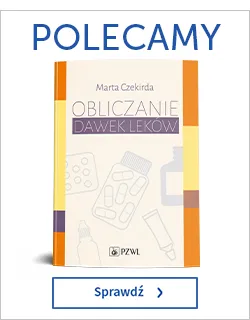
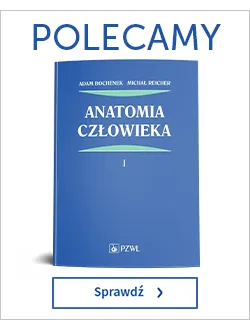





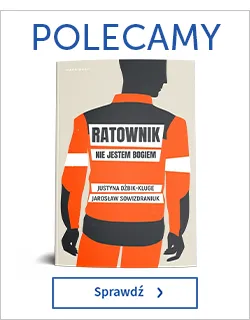


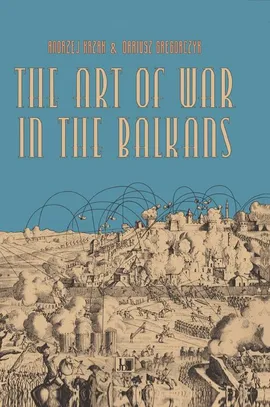
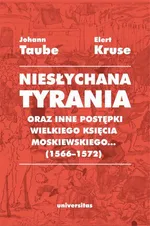
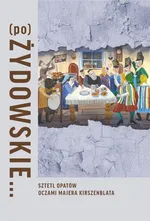
![Akta skarbowo-wojskowe z epoki Wazów. [Tom 2] Wielkie Księstwo Litewskie w okresie panowania Jana Kazimierza (1648-1668) Akta skarbowo-wojskowe z epoki Wazów. [Tom 2] Wielkie Księstwo Litewskie w okresie panowania Jana Kazimierza (1648-1668)](https://emp-scs.img-osdw.pl/img-p/1/kipzwl/0a4a5168/std/96-ed/252836066o.webp)
